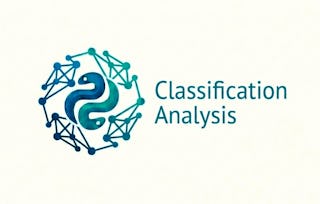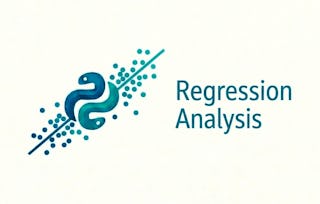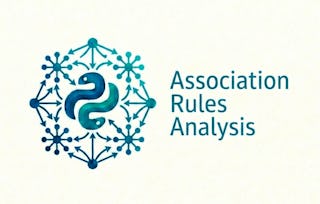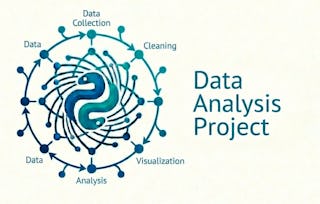Le cours "Analyse de Clustering" introduit les étudiants aux concepts fondamentaux de l'apprentissage non supervisé, en se concentrant sur les techniques de clustering et de réduction de dimension. Les participants exploreront diverses méthodes de Clustering, y compris le partitionnement, le clustering hiérarchique, le clustering basé sur la densité et le clustering basé sur la grille. En outre, les étudiants apprendront l'Analyse en composantes principales (ACP) pour la réduction des dimensions. Grâce à des tutoriels interactifs et des études de cas pratiques, les étudiants acquerront une expérience pratique dans l'application des techniques de Clustering et de réduction de dimension à divers ensembles de données. À la fin de ce cours, les étudiants seront en mesure de : 1. Comprendre les principes et l'importance de l'apprentissage non supervisé, en particulier le Clustering et la réduction de dimension. 2. Basez-vous sur les concepts et les applications des méthodes de Clustering partitionnées, hiérarchiques, basées sur la densité et basées sur la grille. 3. Explorer les fondements mathématiques des algorithmes de Clustering pour comprendre leur fonctionnement. 4. Appliquer les techniques de Clustering à divers ensembles de données pour la découverte de modèles et l'exploration de données. 5. Comprendre le concept de réduction des dimensions et son importance dans la réduction de la complexité de l'espace des caractéristiques. 6. Mettre en œuvre l'Analyse en composantes principales (ACP) pour la réduction des dimensions et interpréter l'espace des caractéristiques réduit. 7. Évaluer les résultats du Clustering et l'efficacité de la réduction de dimension en utilisant les mesures de performance appropriées. 8. Appliquer les techniques de clustering et de réduction de dimension dans des études de cas du monde réel pour en tirer des enseignements significatifs. Tout au long du cours, les étudiants s'engageront activement dans des tutoriels et des études de cas, renforçant leurs compétences en matière d'analyse de clustering et de réduction de dimension et acquérant une expérience pratique dans l'application de ces techniques à divers ensembles de données. En atteignant les objectifs d'apprentissage, les participants seront bien équipés pour exceller dans les tâches d'apprentissage non supervisé et prendre des décisions éclairées en utilisant les techniques de Clustering et de réduction de dimension.

Analyse de regroupement

Analyse de regroupement
Ce cours fait partie de Spécialisation Analyse des Données avec Python
Enseigné en Français (doublage IA)

Instructeur : Di Wu
2 645 déjà inscrits
Inclus avec
11 avis
Expérience recommandée
Ce que vous apprendrez
Comprendre les principes et l'importance de l'apprentissage non supervisé, en particulier le regroupement et la réduction des dimensions.
Appliquer des techniques de regroupement à divers ensembles de données pour la découverte de modèles et l'exploration de données.
Mettre en œuvre l'analyse en composantes principales (ACP) pour la réduction des dimensions et interpréter l'espace des caractéristiques réduit.
Compétences que vous acquerrez
- Catégorie : Apprentissage statistique des machines
- Catégorie : Algorithmes d'apprentissage automatique
- Catégorie : Apprentissage automatique
- Catégorie : Data mining
- Catégorie : Apprentissage automatique appliqué
- Catégorie : Analyse des Données
- Catégorie : Réduction de dimensionnalité
- Catégorie : Analyse spatiale
- Catégorie : Analyse exploratoire des données (AED)
- Catégorie : Évaluation de modèles
- Catégorie : Apprentissage non supervisé
- Section Compétences masquée. Affichage de 6 compétence(s) sur 11.
Détails à connaître

Ajouter à votre profil LinkedIn
6 devoirs
Découvrez comment les employés des entreprises prestigieuses maîtrisent des compétences recherchées

Élaborez votre expertise du sujet
- Apprenez de nouveaux concepts auprès d'experts du secteur
- Acquérez une compréhension de base d'un sujet ou d'un outil
- Développez des compétences professionnelles avec des projets pratiques
- Obtenez un certificat professionnel partageable

Il y a 6 modules dans ce cours
Cette semaine propose une introduction à l'Apprentissage non supervisé et à l'Analyse de cluster. Vous vous pencherez sur les méthodes de clustering par partitionnement, telles que les K-moyennes et les K-médoïdes, en comprenant leurs principes et leurs applications.
Inclus
2 vidéos5 lectures1 devoir1 sujet de discussion
Cette semaine, vous explorerez le regroupement hiérarchique, une méthode qui crée une structure arborescente pour représenter les similitudes entre les données.
Inclus
1 vidéo3 lectures1 devoir1 sujet de discussion
Cette semaine est consacrée au clustering basé sur la densité, qui regroupe les points de données en fonction de leur densité au sein de l'ensemble de données.
Inclus
1 vidéo3 lectures1 devoir1 sujet de discussion
Tout au long de cette semaine, vous explorerez le clustering basé sur des grilles, une approche qui partitionne l'espace de données en grilles pour un clustering efficace.
Inclus
1 vidéo2 lectures1 devoir1 sujet de discussion
Cette semaine présente les techniques de réduction de dimensionnalité en tant qu'étape de prétraitement critique pour le traitement des données à haute dimension.
Inclus
1 vidéo3 lectures1 devoir1 sujet de discussion
La dernière semaine est consacrée à une étude de cas complète au cours de laquelle vous appliquerez des techniques de regroupement et de réduction des dimensions pour résoudre un problème du monde réel.
Inclus
1 lecture1 devoir1 sujet de discussion
Obtenez un certificat professionnel
Ajoutez ce titre à votre profil LinkedIn, à votre curriculum vitae ou à votre CV. Partagez-le sur les médias sociaux et dans votre évaluation des performances.
Instructeur

Offert par
En savoir plus sur Analyse des Données

University of Colorado Boulder

University of Colorado Boulder

University of Colorado Boulder

University of Colorado Boulder
Pour quelles raisons les étudiants sur Coursera nous choisissent-ils pour leur carrière ?

Felipe M.

Jennifer J.

Larry W.

Chaitanya A.

Ouvrez de nouvelles portes avec Coursera Plus
Accès illimité à 10,000+ cours de niveau international, projets pratiques et programmes de certification prêts à l'emploi - tous inclus dans votre abonnement.
Faites progresser votre carrière avec un diplôme en ligne
Obtenez un diplôme auprès d’universités de renommée mondiale - 100 % en ligne
Rejoignez plus de 3 400 entreprises mondiales qui ont choisi Coursera pour les affaires
Améliorez les compétences de vos employés pour exceller dans l’économie numérique
Foire Aux Questions
Pour accéder aux supports de cours, aux devoirs et pour obtenir un certificat, vous devez acheter l'expérience de certificat lorsque vous vous inscrivez à un cours. Vous pouvez essayer un essai gratuit ou demander une aide financière. Le cours peut proposer l'option "Cours complet, pas de certificat". Cette option vous permet de consulter tous les supports de cours, de soumettre les évaluations requises et d'obtenir une note finale. Cela signifie également que vous ne pourrez pas acheter un certificat d'expérience.
Lorsque vous vous inscrivez au cours, vous avez accès à tous les cours de la spécialisation et vous obtenez un certificat lorsque vous terminez le travail. Votre certificat électronique sera ajouté à votre page Réalisations - de là, vous pouvez imprimer votre certificat ou l'ajouter à votre profil LinkedIn.
Oui, pour certains programmes de formation, vous pouvez demander une aide financière ou une bourse si vous n'avez pas les moyens de payer les frais d'inscription. Si une aide financière ou une bourse est disponible pour votre programme de formation, vous trouverez un lien de demande sur la page de description.
Plus de questions
Aide financière disponible,

